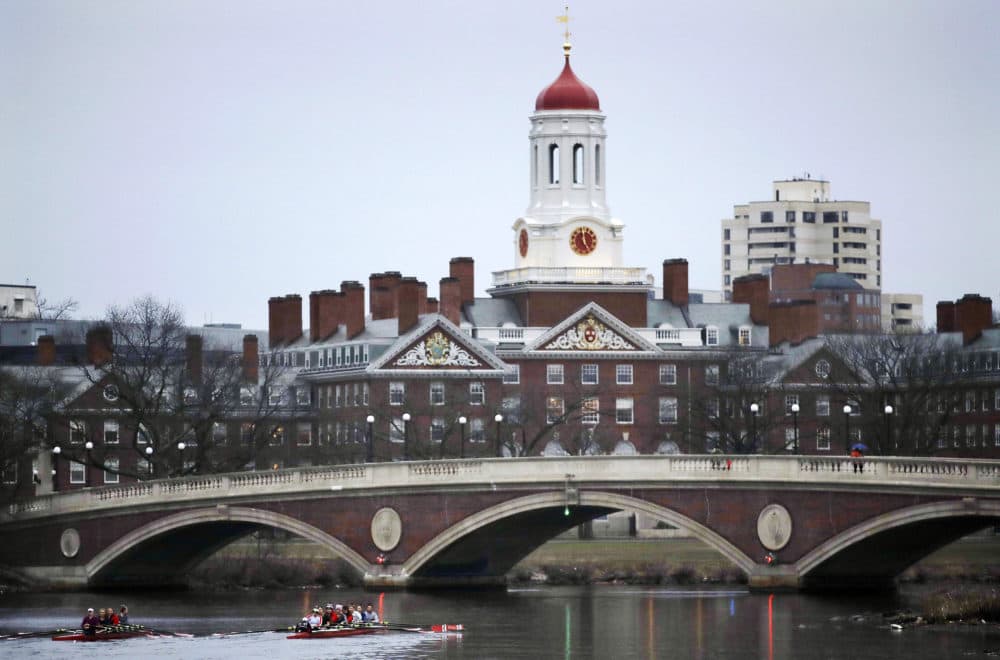Advertisement
Commentary
New lawsuit, old story: Harvard undermines victims of sexual assault

Last semester, in my Title IX class at Harvard Law School, we studied how institutions often betray victims of campus sexual violence. For one assignment, we read an anonymous 2014 op-ed published in The Harvard Crimson, titled "Dear Harvard: You Win." The letter details a student’s painful journey to seek justice after being sexually assaulted by a classmate.
The anonymous victim describes how she was repeatedly failed by the Harvard administration. Some officials downplayed her complaint. Others promised the perpetrator would face accountability that did not follow. Meanwhile, she ran into her assailant up to five times a day.
This type of institutional failure while seeking accountability for assault has been referred to as “second rape,” where a victim is retraumatized. Sadly, this story is common. Time and time again, schools like Harvard have not only shirked their duty to protect students, but have worked to undermine those who bring credible assault claims forward.
History is now repeating itself. Last week 38 Harvard faculty members rushed to the defense of John Comaroff, a professor accused of sexual harassment, and kissing and groping students without their consent. Comaroff allegedly retaliated against students who reported these violations.
Without full information, the 38 professors criticized the results of a university-led misconduct investigation into Comaroff. “We are dismayed by Harvard’s sanctions against [Comaroff] and concerned about its effects on our ability to advise our own students," they wrote.
Admittedly, the faculty letter focused on a specific allegation against Comaroff, that he graphically and repeatedly detailed how an LGBTQ student would be raped if she went to certain parts of Africa. After the women filed a lawsuit this week, most of the letter’s signatories are backtracking, claiming they did not have all the information.
[S]chools like Harvard have not only shirked their duty to protect students, but have worked to undermine those who bring credible assault claims forward.
Harvard’s mishandling of student sexual assault was documented in the 2015 film, "The Hunting Ground." The film received national attention, premiering at Sundance and earning a screening at the White House. The documentary, which examines sexual violence at several universities, highlights the alleged sexual assault in 2011 of two women while they were unconscious: Harvard Law School student Kamilah Willingham and her friend, by a law school acquaintance, Brandon Winston.
After an investigation, the school administrative board found that the accused “student had initiated sexual conduct with the complainant while she was asleep or unconscious, and not capable of consenting” and imposed a sanction of dismission, a form of expulsion that would allow him to apply for readmission. Winston was later convicted of misdemeanor nonsexual assault and battery.
That’s not where the story ends. In 2012, Harvard Law School faculty voted to overturn the administrative board’s dismissal decision in a process later criticized by the Department of Education. Faculty did not stop there. Though Winston went unnamed in the 2015 film, 19 Harvard Law School professors took it upon themselves to cast doubt on Willingham’s story and the “general assault phenomenon at universities.”
Advertisement
“No evidence whatsoever was introduced at trial that [Winston] was the one responsible for the inebriated state of the women who are portrayed in the film as his victims,” reads one line from the letter, among other dumbfoundingly inadequate arguments. But faculty did not stop there. A month later, law school professors assisted Winston’s lawyers in preparing a multimedia website to defend Winston and discredit Willingham.
How is it that despite #MeToo, despite several high-profile public reckonings, despite years of more data and hindsight, these educators have learned nothing?
The faculty behavior is shameful when you consider that 1 in 5 women are sexually assaulted while in college. Moreover, was being convicted of a nonsexual battery against a female student not egregious enough? The faculty letter is one example of the many ways institutions discourage reporting and retraumatize those who dare to tell their story. Second rape.
Months later, Willingham, now an anti-violence activist, penned her own open letter in response, “To the Harvard 19: Do Better.” An excerpt:
You — my former professors — have joined together to silence and discredit my story of sexual assault and its institutional mishandling. Your attacks promote myths about sexual assault that allow a loathsome rape culture to thrive on our campuses and across our country. You omit key facts of the case, including the perpetrator, Brandon Winston's own statements, to advance your own false narrative.
Willingham proceeds to offer a master class on mythologies surrounding the campus sexual assault epidemic.
In the Comaroff case, faculty members who signed the letter can't use their ignorance about the full scale of the allegations as an excuse. Of course, there was more to the story. Do these faculty members not read the news? What incentive would multiple graduate students have to fabricate these reports against a powerful man in their niche field of study? How is it that despite #MeToo, despite several high-profile public reckonings, despite years of more data and hindsight, these educators have learned nothing?
To the Harvard 38: Do better.
